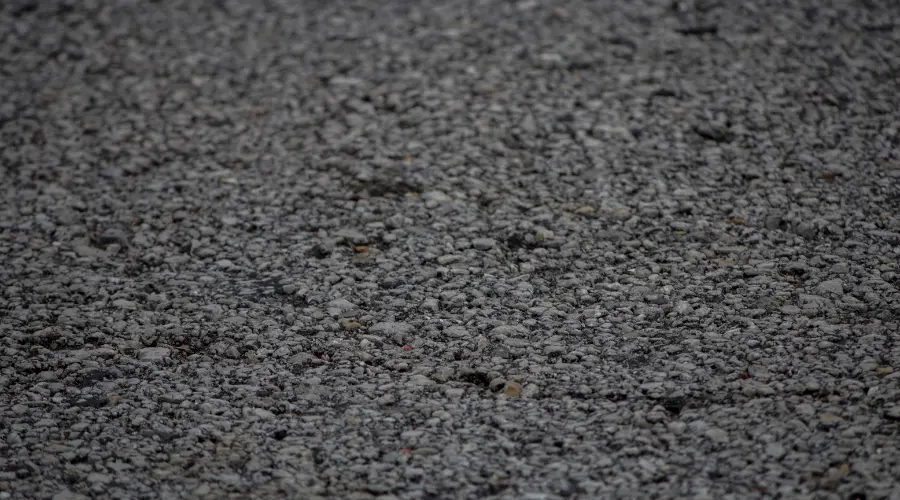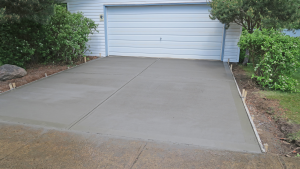Pavements are durable surfaces constructed from asphalt, concrete, or specialized composites designed to endure various loads and environmental factors. Their structural integrity and longevity make them indispensable in modern infrastructure. In this blog, we’ll delve into the different types of pavements, exploring their characteristics, benefits, and challenges.
Key Takeaways
- Pavements are essential for durable, long-lasting surfaces used for roads, driveways, and other infrastructure.
- Types of pavements include flexible, rigid, semi-rigid, and interlocking concrete block pavements (ICBP).
- Each type has unique features, benefits, and challenges, suitable for specific applications and conditions.
Flexible Pavement
Flexible pavement is characterized by its ability to bend and adapt under loads without fracturing. Its layers work cohesively to distribute stress.
Features of Flexible Pavements
- The topmost layer bears the highest compressive stress and must be robust enough to resist traffic loads and environmental wear.
- Stress diminishes in the lower layers, allowing the use of cost-effective materials for sub-layers.
- Flexible pavements are highly adaptable and can be overlaid to extend their service life.
Benefits
- Cost-Effectiveness: Initial installation with a thin bituminous surface reduces costs.
- High Salvage Value: Materials can be reused, enhancing sustainability.
- Quick Traffic Resumption: Pavements can reopen within 24 hours post-installation.
- Scalable Maintenance: Functional issues can be addressed using overlay techniques.
Challenges
- Water Vulnerability: Deteriorates under stagnant water conditions.
- Frequent Maintenance: Regular upkeep is required to prevent potholes and cracks.
- Thickness Requirements: Certain applications demand thicker layers, increasing costs.
- Limited Visibility: Nighttime reflectivity can be inadequate without additional measures.
Rigid Pavement
Rigid pavements, primarily constructed using Portland cement concrete (PCC), are known for their substantial flexural strength and rigidity.
Features of Rigid Pavements
- Stresses are distributed over a broader area via slab action.
- Pavement quality concrete (PQC) can endure flexural stresses of up to 45kg/cm².
- High durability under heavy loads and adverse weather conditions.
Benefits
- Water Resistance: Performs well even in stagnant water conditions.
- Durability: It lasts up to 30 years with minimal maintenance.
- Low Life-Cycle Costs: Economical over its lifespan despite high initial costs.
- Improved Safety: Enhanced nighttime visibility.
- Reduced Thickness: Requires thinner layers compared to flexible pavements.
Challenges
- Long Construction Time: Requires 28 days to cure before traffic use.
- Cracking Issues: Difficult to repair once cracks appear.
- Smoothness Risks: The surface can become slippery, requiring additional treatments.
- Complex Design: Axle load studies and 30-year lifespan considerations add to planning intricacies.
Semi-Rigid Pavements
Semi-rigid pavements blend the characteristics of flexible and rigid pavements. They use intermediate materials such as soil cement or lean concrete in base layers.
Features
- Offers lateral load distribution through the pavement depth.
- Combines flexible pavement layers with semi-rigid sub-base components.
Benefits
- Combines the adaptability of flexible pavements with the durability of rigid pavements.
- Reduces material costs for base layers.
Challenges
- Performance might change based on the quality of intermediate materials.
- Requires specialized expertise during construction.
Interlocking Concrete Block Pavement (ICBP)
ICBP is a modern solution to durability concerns in conventional pavements. It’s extensively used for areas subjected to heavy loads and environmental stress.
Features
- It is composed of individual blocks that interlock to distribute loads efficiently.
- It is easily replaceable and highly customizable.
Benefits
- Easy Maintenance: Damaged blocks can be replaced without extensive reconstruction.
- Durability: Performs well under high loads and adverse weather.
- Eco-Friendly: Materials are often recyclable.
- Aesthetic Appeal: accessible in a range of hues and patterns to suit specific preferences.
Challenges
- Labor-Intensive Installation: Requires precision during placement.
- Higher Initial Costs: Compared to traditional asphalt or concrete.
- Weed Growth: Gaps between blocks may require regular upkeep.
Comparison: Flexible vs. Rigid Pavements
FeatureFlexible PavementRigid Pavement
Material Bitumen-based Portland cement concrete
Thickness Relatively thicker Thinner
Initial Cost Lower Higher
Maintenance Frequent and scalable Minimal
Durability Moderate High
Water Resistance Susceptible to deterioration Highly resistant
Night Visibility Limited Excellent
Repair Complexity Simple overlays Challenging once cracks form
FAQs
1. What is the primary difference between flexible and rigid pavements?
Flexible pavements rely on layers to distribute loads, while rigid pavements use slab action to spread stresses over a broader area. Rigid pavements are more durable but costlier upfront.
2. Which pavement type is best for heavy traffic areas?
Due to their strength and durability, rigid pavements are ideal for heavy traffic and offer long-term cost benefits despite higher initial costs.
3. Are interlocking concrete blocks suitable for driveways?
ICBP is highly suitable for driveways due to its durability, aesthetic appeal, and easy maintenance.
4. How can I extend the life of flexible pavement?
Regular maintenance, timely patching of potholes, and the use of high-quality materials for the top layers can significantly extend the lifespan of flexible pavements.
5. What factors influence the choice of pavement?
Factors include traffic load, environmental conditions, budget, maintenance requirements, and aesthetic preferences.
6. Can semi-rigid pavements handle heavy loads?
Yes, semi-rigid pavements can handle heavy loads to a certain extent, combining the benefits of both flexible and rigid pavements.
Conclusion
Understanding the different types of pavements—flexible, rigid, semi-rigid, and ICBP—enables informed decisions for specific applications. Each type has strengths and challenges, tailored to various traffic loads, environmental conditions, and budget constraints. Contact Jersey City Paving at (201) 977-4882 today for premium paving solutions!







